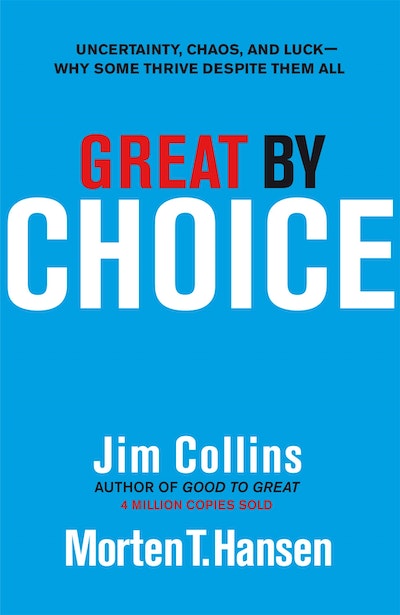- Published: 13 October 2011
- ISBN: 9781446494585
- Imprint: Cornerstone Digital
- Format: EBook
- Pages: 320
Great by Choice
Uncertainty, Chaos and Luck - Why Some Thrive Despite Them All
- Published: 13 October 2011
- ISBN: 9781446494585
- Imprint: Cornerstone Digital
- Format: EBook
- Pages: 320
"Luck is not a strategy" the authors conclude. What determines any organization’s success is how it prepares for both good and bad luck. They call this getting a "positive return" on luck and, if Good to Great’s four million-plus sales are anything to go by, this idea will be embedded in corporate speak before you know it
Philip Delves Broughton, author of What They Teach you At Harvard Business School, Management Today
A sensible, well-timed and precisely targeted message for companies shaken by macroeconomic crises
Financial Times
For this guru, no question is too big
New York Times
If you want to understand what it takes to run a great company in any circumstances and you admire brilliant analysis and a clear, evocative writing style, then Great By Choice is worth five stars out of five
James Scouller, People Management
Jim Collins ... is the most influential management thinker alive
Fortune
Jim Collins has built a reputation as something of a myth buster ... This book is recommended
Financial World
The fascinating detail of the book is its attempt to engage with the role of luck in the success of an enterprise and its finding that they become great by choice rather than chance
Significance magazine
The findings are quite staggering. Many of the assumptions we have made about managing in these challenging times are questioned and often found wanting … The book really does provide a new prospective on leadership
Quality World magazine





